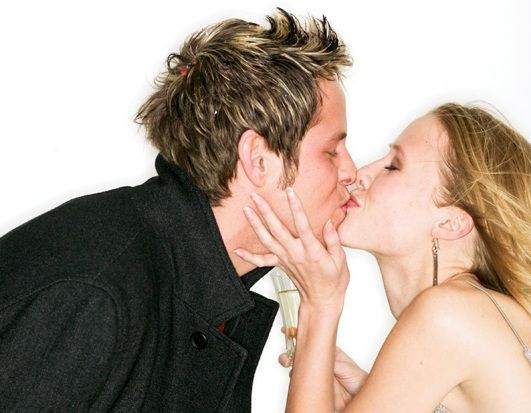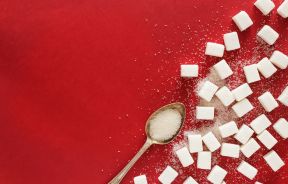Lovers Swap Genes While Kissing: DNA Lingers in the Mouth Even After a Light Peck

Kissing is a physically affectionate act of pressing the lips against someone or something. The act is commonly used to express a multitude of human emotions like love, respect and friendship. However, what is less obvious is that when two lovers share a passionate kiss, they are also swapping their bacteria, bodily fluids and parts of their genetic code.
And no matter how brief the encounter, the DNA of your kissing partner will linger around your mouth for at least an hour.
Romantic right? However, experts say that having someone else's DNA swim around in your mouth could also help fight crime. For example victims of unwanted attention in rape and assault cases would have incriminating DNA evidence swirling in their saliva. DNA in saliva could also reveal whether lovers have been true to one another.
Natália Kamodyová and her team of researchers at Comenius University in Bratislava, Slovakia, conducted a study that consisted of 12 couples. Researchers had asked to couples to kiss each other passionately for at least 2 minutes, and after the kissing sessions, saliva samples were collected from the women immediately and at five, 10, 30 and 60-minute intervals. Saliva samples had also been collected before each couple kissed.
Researchers noted that because the method used in the study relied on detection of the Y chromosome, it can only be used to identify male DNA in a woman's saliva.
The latest findings published in the journal Forensic Science International: Genetics, show that the man's DNA was still present in the women's saliva and could be identified through amplification after at least an hour.
"We were able to determine the presence of male DNA in female saliva even after 60 minutes with a simple qPCR-based test. Moreover, in more than one third of samples, it was possible to get the full Y-STR genotype of the relevant male 10min after kissing," the researchers wrote in the study.
Researchers noted that while the study was conducted on volunteers, the findings could also apply to different cases of sexual assaults in which a male perpetrator forces the victim to kiss him.
"Our data clearly indicate the possibility of using saliva as a source of evidence of sexual harassment, infidelity, rape or other kinds of sexual assaults in cases when a biological sample can be collected within a short time after the act," researchers wrote.
"We've shown it's possible to get a full profile, which could be useful in crime investigation to pinpoint the possible perpetrator among suspects or exclude those innocent," Kamodyová told New Scientist.
Kamodyová and her team are not researching whether DNA can survive longer than an hour and whether it can be extracted from the mouths of women who have already died.



























